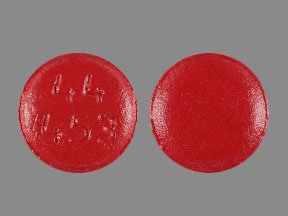Phenylephrine Interactions
There are 201 drugs known to interact with phenylephrine, along with 4 disease interactions, and 1 alcohol/food interaction. Of the total drug interactions, 27 are major, 171 are moderate, and 3 are minor.
- View all 201 medications that may interact with phenylephrine
- View phenylephrine alcohol/food interactions (1)
- View phenylephrine disease interactions (4)
Most frequently checked interactions
View interaction reports for phenylephrine and the medicines listed below.
- Adderall (amphetamine / dextroamphetamine)
- Alcohol (contained in alcoholic beverages) (ethanol)
- Aleve (naproxen)
- Allegra (fexofenadine)
- Ativan (lorazepam)
- Benadryl (diphenhydramine)
- Claritin (loratadine)
- CoQ10 (ubiquinone)
- Cymbalta (duloxetine)
- Dextromethorphan HBr Adult Formula (dextromethorphan)
- Fish Oil (omega-3 polyunsaturated fatty acids)
- Flexeril (cyclobenzaprine)
- Flonase (fluticasone nasal)
- Lexapro (escitalopram)
- Lyrica (pregabalin)
- MiraLAX (polyethylene glycol 3350)
- Mucinex (guaifenesin)
- Paracetamol (acetaminophen)
- Pepto-Bismol (bismuth subsalicylate)
- Probiotic Formula (bifidobacterium infantis / lactobacillus acidophilus)
- Singulair (montelukast)
- Tylenol (acetaminophen)
- Vitamin B12 (cyanocobalamin)
- Vitamin C (ascorbic acid)
- Vitamin D3 (cholecalciferol)
- Vyvanse (lisdexamfetamine)
- Xanax (alprazolam)
- Zofran (ondansetron)
- Zoloft (sertraline)
- Zyrtec (cetirizine)
Phenylephrine alcohol/food interactions
There is 1 alcohol/food interaction with phenylephrine.
Phenylephrine disease interactions
There are 4 disease interactions with phenylephrine which include:
More about phenylephrine
- phenylephrine consumer information
- Compare alternatives
- Pricing & coupons
- Reviews (24)
- Drug images
- Latest FDA alerts (5)
- Side effects
- Dosage information
- Patient tips
- During pregnancy
- Support group
- Drug class: decongestants
- Breastfeeding
- En español
Related treatment guides
Drug Interaction Classification
| Highly clinically significant. Avoid combinations; the risk of the interaction outweighs the benefit. | |
| Moderately clinically significant. Usually avoid combinations; use it only under special circumstances. | |
| Minimally clinically significant. Minimize risk; assess risk and consider an alternative drug, take steps to circumvent the interaction risk and/or institute a monitoring plan. | |
| No interaction information available. |
See also:
Further information
Always consult your healthcare provider to ensure the information displayed on this page applies to your personal circumstances.


